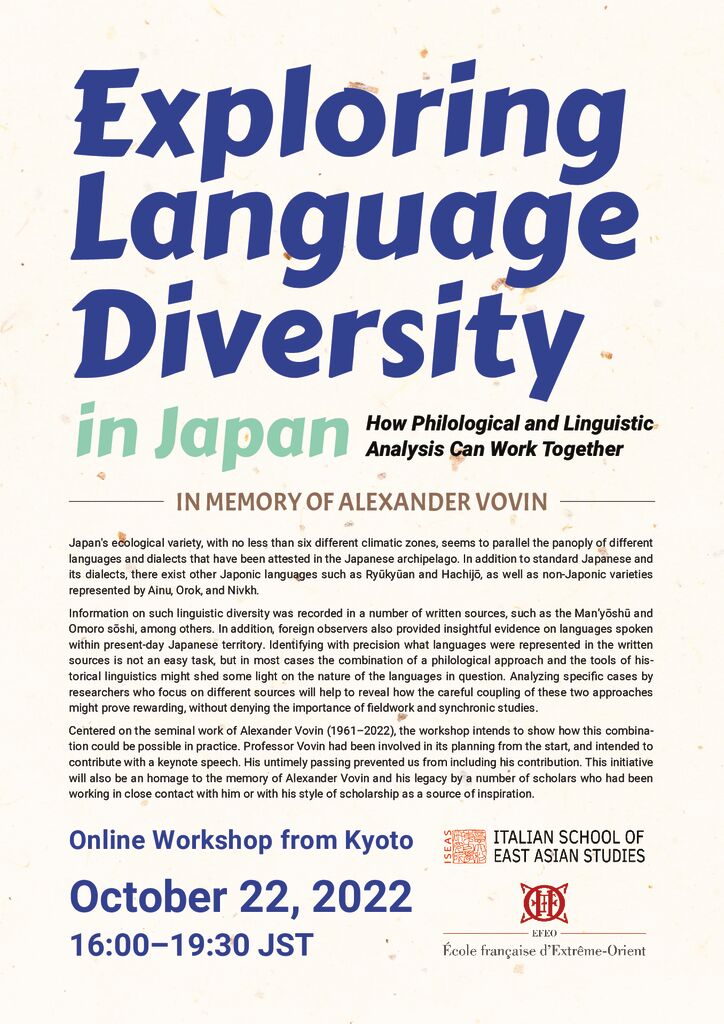October 22, 2022 16:00-19:30 JST
Flyer download
Full program download
Concept
Japan’s ecological variety, with no less than six different climatic zones, seems to parallel the panoply of different languages and dialects that have been attested in the Japanese archipelago. In addition to standard Japanese and its dialects, there exist other Japonic languages such as Ryūkyūan and Hachijō, as well as non-Japonic varieties represented by Ainu, Orok, and Nivkh.
Information on such linguistic diversity was recorded in a number of written sources, such as the Man’yōshū and Omoro sōshi, among others. In addition, foreign observers also provided insightful evidence on languages spoken within present-day Japanese territory. Identifying with precision what languages were represented in the written sources is not an easy task, but in most cases the combination of a philological approach and the tools of historical linguistics might shed some light on the nature of the languages in question. Analyzing specific cases by researchers who focus on different sources will help to reveal how the careful coupling of these two approaches might prove rewarding, without denying the importance of fieldwork and synchronic studies.
Centered on the seminal work of Alexander Vovin (1961–2022), the workshop intends to show how this combination could be possible in practice. Professor Vovin had been involved in its planning from the start, and intended to contribute with a keynote speech. His untimely passing prevented us from including his contribution. This initiative will also be an homage to the memory of Alexander Vovin and his legacy by a number of scholars who had been working in close contact with him or with his style of scholarship as a source of inspiration.
